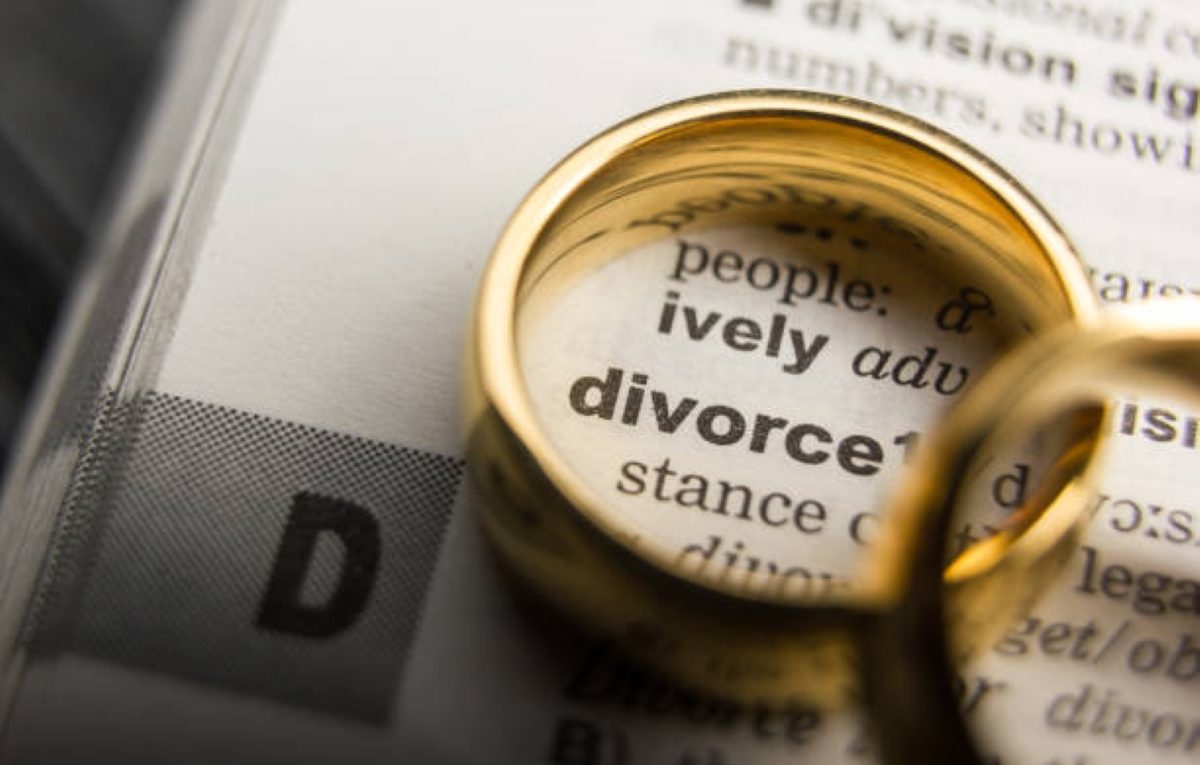The Changing Dynamics of Divorce: From Taboo to Social Media Trend
In one of her amusing viral videos, the influencer RayoMcqueer explains that within her group of friends, the “divorced attitude” consists of being “a lively and fun-loving woman.” While these words may offend those who perceive them as a sexist stereotype (portraying the divorced woman as someone lacking self-control), they can also be seen as a reflection of a phenomenon that is no longer so recent: divorce. According to statistics, more than half of marriages celebrated this year in Spain will end in divorce. Divorce is no longer perceived as a failure or trauma but rather as a relief or an opportunity to have fun again. Of course, it’s also something that urges communication to friends and acquaintances.
The Evolution of Divorce Discourse
Gone are the days — at least for the most part — when divorce was kept hidden or processed in privacy. It used to be a literary theme, dissected in works such as Philip Roth’s cynical novel “My Life as a Man” (1974) or Anne Carson’s profound poetry collection “The Beauty of the Husband” (2003), but not a topic of conversation if one of the affected parties was present. Today, divorce — or the breakup of a stable couple — is not seen as defeat but as a novelty that is announced with optimism, discussed, and even celebrated. This uninhibited display of something initially negative used to be exclusive to celebrities, who heavily rely on the image they project, but now it’s also practiced by anonymous (ex)couples. Is it a way to normalize something that, sooner or later, happens to many of us, or is it a further step in the transformation of our lives, no matter how anonymous we are, into an entertaining social media broadcast where only happiness fits?
The Intersection of Love, Capitalism, and Social Media
If love as a market concept has become a cliché, it’s partly because on social media, we communicate our romantic life and its “relevant events” with the same speed that a multinational corporation would announce the dismissal of its president. And it’s not surprising: one of the revelations made by model Essena O’Neill when she exposed some of the most common deceptions among influencers is that they gain followers (and money) much faster when they are in a relationship. Consequently, this Australian single woman received dozens of proposals from other influencers to fake a relationship and share the benefits.
Maria Bernal, an account director at a social media agency, explains that indeed, recent relationships are attractive, and a breakup, on the contrary, can become a reputational crisis. However, things don’t always work that way: “It depends a lot on the profile of each creator. There are profiles where external content is paramount and others more personal, like Mara Jiménez from @croquetamente, who advocates against fatphobia and talks about issues that directly affect her. She included her partner, so when that partner stopped appearing, many people asked her, and she felt obliged to release a statement. She did it well because it allowed her followers to feel reflected. In the end, managing these crises depends a lot on understanding what kind of empathy your community has for you. If your content depends on you, of course, it will affect you, but not necessarily negatively. Transparency is always better, tackling rumors rather than hiding them.”
The Influence of Social Media on Relationship Narratives
“Recognizing a relationship or its end affects the brand image of many influencers and celebrities,” confirms Loola Pérez, a sexologist and philosopher. “Both the experience of love and its breakup are a mix of fantasy, market, and vulnerability,” continues the therapist. “We live in a society of very different speeds: there is a society anchored in the values of romantic love, reinforced by traditional culture; another that demystifies love and is more aware that bonds are not created by magic; and, of course, another part immersed in the logic of disposable relationships, where not having a commitment or feeling towards a person can mean abuse or instrumentalization.”
Moreover, the couple is something we ritualize through consumption, which is why capitalism —there’s no need to mention Engels’ “The Origin of the Family, Private Property, and the State” to prove it— fits so well with it. However, we live in contradictory times where the economic system wants to encompass everything (any value and its inverse), so the gears of social media are already prepared to extract value from divorces and separations as well. “For example, I don’t think rumors of marital crisis affect the metrics of celebrities because most of them function as a product both together and separately. On the contrary, they increase interest in them,” comments Bernal.
The Era of Authenticity in Social Media
Although the way we think and experience love varies greatly among individuals, the way we communicate it is much more homogeneous and follows the same mimetic trends as other phenomena on the internet. If Alessandro Baricco wrote in “The Game” (2019) that all content uploaded to the network must be “aerodynamic,” and Edgar Cabanas developed the idea of a society dominated by impostor happiness in “Happycracy” (2018), both intuitions are reflected in studies like the one conducted by writer and academic Donna Freitas. During 2017, she interviewed dozens of American university students. The result was her essay “The Happiness Effect,” in which she stated that all those students “had a single concern, recurring and massively propagated through social networks: to appear happy. And not just happy, but extremely happy. This omnipresent imperative affects all social categories.”
As seven years on the internet equate to almost a geological era, hashtags like #nofilters, #nomakeup, or the BeReal app (record downloads in 2023) seem to challenge that dictatorship of perfection. “The era when everything seemed fantastic is beginning to be overcome. There is a brutal demand for authenticity, and the figure of the almost divine influencer is increasingly distant; people are tired and seek reality,” points out Bernal.
Today, disobeying “the imperative of happiness” has become a trend called sadfishing. Sadfishing, in its worst form, involves pretending pain or dejection to attract the audience’s attention, but it could also indicate that we are beginning to realize that discouragement or rough patches are part of life (and should be given virtual space). Bernal believes that “breaking down is starting to be well seen, but always within certain parameters and always through voluntary video.” She adds, “The most important thing is that you choose to share that bad moment, which, on many occasions, will be presented very carefully and can increase the empathy of your community. Even brands adopt the tone of a person with virtues but also with weaknesses.”
So, the wave of honesty regarding breakups and divorces has erupted when we have finally left behind that unwritten rule that dictated, during the early years of mass internet, “if it’s ugly, don’t post it.” In any case, such a complex communication policy as the one we develop during a separation requires very varied impulses, and the anxiety to take advantage of any experience (even the most difficult ones) to reinforce our personal brand is another of the most powerful ones. Regarding this constant construction of the personal brand, Bernal is clear that it is a perverse loop: brands communicate as if they were people when they will
never be your friends, while individuals “work on our exposure to others as brands, making all kinds of strategic decisions and approaches,” even if it’s exhausting.
The Emotional Terrain of Divorce
In the essay “The End of the Love Novel” (Sexto Piso, 2022), New York writer Vivian Gornick recalls that in the era she grew up in (the forties and fifties of the twentieth century), “the whole world believed in love.” “Then,” writes Gornick, “we didn’t know anyone who got divorced. When Love and Marriage couldn’t get us to the promised land, sadness, anger, confusion came. We felt deceived: marriage not only failed to rescue you, but it became a true existential hell. There was nothing left but to endure.” One of the axes of her book is the transformation of romantic love: from a supposedly harmless dogma to a myth in question; and this, along with divorce, is an achievement of feminism. “The claim for divorce has often been made from the feminist movement, understanding that this break has meant for many women greater autonomy and control over their life plans and emotional interests,” clarifies Loola Pérez.
However, many divorces are still a traumatic experience for one or both parties, and beyond the optimism (or calculated sadness) projected on the internet, Pérez advises considering it balancedly: “Breaking up a relationship is transitioning to a new stage; there are changes and opportunities. There is an opportunity to get to know oneself in a moment of pain (without falling into the romanticism of sadness or victimhood), to experience love again in maturity and with maturity (in a responsible manner), or even to connect with the idea that one can be happy regardless of a romantic relationship. But using social media to check attractiveness and boost self-esteem does not mean building healthy self-esteem.”
Furthermore, a significant part of the narrative we build on our social networks crumbles in more intimate settings like private conversations or, paradoxically, within forums where one writes under a pseudonym. This is what happens on Forocoches, a masculinized, coarse, and violent space where, however, one of the most successful threads (When you see your ex for the first time) collects advice on facing a breakup and offers, as far as possible, support to users who feel the worst. Surely, some of those anonymously recognized broken users have taken advantage of their breakup to convey the idea that they know how to overcome difficult situations (this is what the much-cited “resilience,” a quality also highly valued in work environments, consists of). It is an inconsistency that is not only attributable to the ambivalence of the internet but also reveals “the difficulty for many adults to form healthy relationships after a breakup or to go through mourning with maturity,” in Pérez’s words, who has dealt with many such cases in her practice.
Conclusion: To Announce or Not to Announce?
But, ultimately, and beyond that gap between what we project and what we truly feel, returning to the more practical terrain, the initial question arises again: Do I need to issue a statement to my friends and followers if I get divorced? Bernal responds: “It depends on how linked your personal life and your product are. Some people launch it at the drop of a hat, assuming they have a celebrity status they don’t have.” In other words, if you don’t sell any product and your followers don’t ask, it’s better not to do it.









